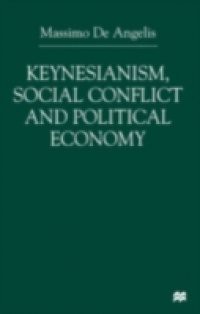This book studies the relationship between social conflict and the rise, establishment and collapse of Keynesianism. It shows not only that Keynesian policies were informed by the need to co-opt working-class struggles, but also that Keynesian concepts reveal the strategic character of the economic discourse vis-a-vis social movements. The author explains the interconnection between the history of the working-class movement, economic theory, the development of economic thought and socio-economicinstitutions of the post-war period (with particular reference to the USA). The conclusion is a critical evaluation of the viability and desirability of a new Keynesianism at the dawn of the new millennium in the context of the global economy and the rise of new social movements. The analysis is developed through an interdisciplinary approach rooted in a non-dogmatic Marxist framework.

